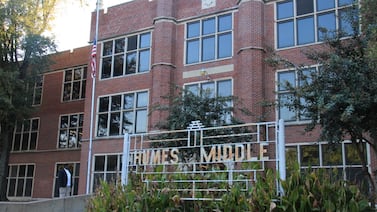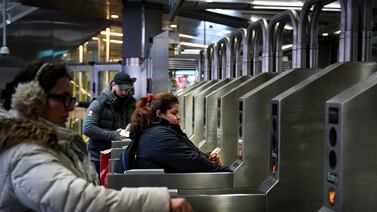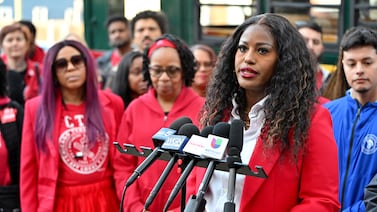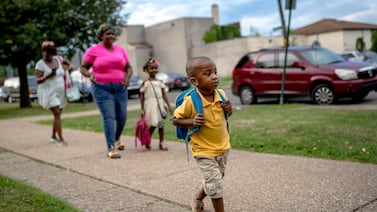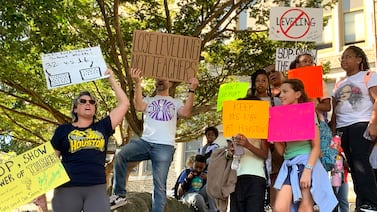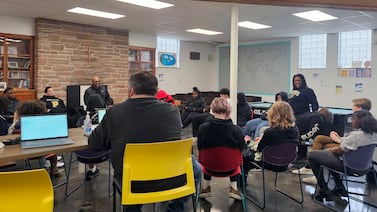The Denver school district has reassigned campus safety officers to work in elementary classrooms, as the district struggles with staffing shortages during the pandemic. The move has raised concerns for at least one advocate for students with disabilities who learned about the practice.
Most Denver students are learning online due to rising COVID-19 cases in the city. But Denver Public Schools has kept elementary schools open to serve students in preschool through second grade. Special programs for students with disabilities also remain open for in-person learning, as are programs for students new to the United States.
However, staffing classrooms has proven difficult. Some teachers and paraprofessionals have requested to work from home due to underlying health conditions. The district tells staff who are working in schools to stay home if they have any symptoms. In addition, nearly 400 staff members were quarantining at home as of Friday because they’d been exposed to the virus.
To help fill gaps, the district is requiring staff who normally work at its headquarters to work in schools at least one day a week — as teachers if they have a teaching license, or performing other duties if they don’t. The district is also redeploying its campus safety officers, who are unarmed security guards who usually work at middle and high schools.
Thirty-four campus safety officers are currently working in elementary school classrooms instead, Denver Public Schools spokesperson Winna MacLaren said.
While the day-to-day staffing situation is fluid based on what schools need, MacLaren said the district most often assigns campus safety officers to work as paraprofessionals in special education programs “because of their extensive training in supporting these environments.”
Specifically, MacLaren said the officers are trained in nonviolent crisis intervention techniques. She noted that other district staff who are filling in may not have that training.
“Campus safety officers are trained to work in schools and specifically with students, providing social emotional support,” MacLaren said. “They are not law enforcement, but they do provide rapid response in times of emergency and coordinate with law enforcement if needed.
“Campus safety officers have spent years building trust and relationships with students, and we are grateful for their support as we all work together to address these critical staffing shortages.”
Still, the assignments cause concern for Pam Bisceglia, executive director of Advocacy Denver, an organization that advocates for students with disabilities.
While Bisceglia acknowledges that nonviolent crisis intervention training is good, she said campus safety officers are trained “through a different lens than an educator.” Special education paraprofessionals are key to helping many students with disabilities succeed in school by working one-on-one or in small groups with them on reading and math skills, or helping students focus in class. Paraprofessionals also help some students with eating or toileting.
Campus safety officers may not have experience or training in those same things, Bisceglia said. She is also troubled that the officers are wearing their uniforms in class. “Sometimes that uniform really triggers different behaviors and different trauma,” she said.
MacLaren said the officers are uniformed because “we want them quickly identified as first responders should an emergency arise.”
The district employs about 100 campus safety officers in total. They are classified as paraprofessionals and earn from $18.29 to $26.80 per hour. They are not law enforcement officers and do not carry guns. The district has a smaller force of patrol officers who do, in addition to sworn Denver police officers who work at some secondary schools, though the district is in the process of ending the police officer program.
Unarmed campus safety officers came under increased scrutiny last year for handcuffing students, which is allowed under district policy. After a father went public with the story of his 7-year-old son being handcuffed at school, the school board banned the handcuffing of elementary school students. It is still allowed for middle and high school students.
District data shows campus safety officers handcuffed 155 students in the 2017-18 and 2018-19 school years. Nearly half of the students were Black and about a third were 11 years old or younger. After the ban, the number decreased sharply.
The school board also added five more days of training per year for campus safety officers, who at the time could start work with as little as 4½ weeks of training.



